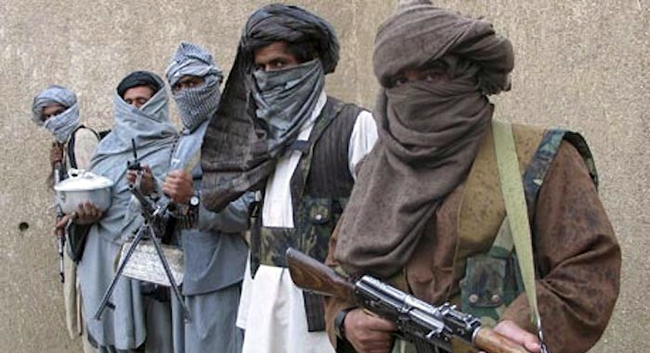The recent terrorists attack on German Consulate in Mazar-e-Sharaf, killed six civilians and injured 128, including 19 women, 38 children and damaged 100 homes and shops. This indicates that terrorist groups believe in nothing they kill children, man and women equally. In fact, they seem more likely to a blazing fire which burn Muslim and None-Muslim eastern and western, sinful and sinless equally. According to some reports, from 1970 to 2016, there are around 150,000 terrorist incidents happened worldwide. Just over 23,000 occurred in North America and Europe. In 2014 alone, 13,463 terrorist attacks occurred around the world, causing at least 32,700 deaths and more than 34,700 injuries. As of November 16, 2015, 658 detainees from Guantanamo Bay have been transferred: 532 detainees pre-January 22, 2009 and 126 detainees post-January 22, 2009. Of those transfers, at least 117 (17.8 percent) have been confirmed as re-engaging in terrorist activity, and 79 (12 percent) have been suspected of re-engaging in terrorist activity. Nearly 60 percent targeted private, infrastructural, educational, media, or religious individuals and institutions.
Deeper look at issue indicate that there are far more than a flaming fire. For example the destructive explosives passing hundreds of security filters, from east to west, north to south, why no one gets to know them? We live in the age of facilities, why it is not possible to install a few detective gates in order to control the explosive-loads? How can they find ground in a community if internal people do not support them? And finally is there any National consensus against terrorist in Afghanistan? The silence and Hypothyroidism against deliberately frequent targets of innocent children, men and women proves that there is no consensus in the matter of terrorism in this country.
Why there is no positive development in security situation within past 15 years? Insecurity and insurgent activities have taken an upward trend. There are daily reports of clashes, explosions and deaths nearly all over the country: from the east to the west, the north and to the south. The escalation of fighting has sent the casualties of civilians as well as of both sides to the conflict worryingly high. Over the recent months, Helmand, Kunduz, Faryab and other provinces have taken the brunt of the fighting. Hundreds of civilians victimized and nearly 500,000 people displaced. In addition, poverty and unemployment has reached its unprecedented levels. Since the beginning of the new democratic system, the expectation has been that the Afghan leadership and international humanitarian supporters would pave the way for the economic growth and changes. Instead, they caused flight of human and fiscal capital from the country; they finally face trust deficit far more than ever. Lack of economic perspective and a government stuck in insecurity means Kabul is a failed system. The business community in Afghanistan was hoping that the government would work and coordinate with them closely. It is two years since inauguration of the national unity government, and it looks as if the government distrusts the private sector. The shrinking business environment is not in the interest of the government.
The great part of failure seasons relates to the will of National Unity Government and international stakeholders; due to lack of strong political will against terrorism, unemployment and weakness of government have led to growing insecurity, and the collapse of districts and even provincial capitals to the Taliban. The fall of districts has become a routine matter. Every week, there are reports about districts falling to the insurgents, and then retaken by government forces. The Taliban’s capture of districts and government checkpoints has become a tool for them to seize military vehicles and large cache of weapons, which are then used against Afghan National Security Forces (ANSF). Also in some instances, covert deals are blamed for the fall of regions and districts to the Taliban, with some reports suggesting that some military officials leave checkpoints to the Taliban in exchange for money, but yet leaders of the government not only do not question them, but also send them elsewhere, and even recognize their performance sometimes. This unfavourable practice has led to the incapability of ANSF to repel insurgent offensives despite spending billions of dollars on them.
To successfully combat against international threats, first we should stop terrorist by stopping aid at community level, consensus at national level and convention at international level. If the people stop supporting terrorists in the communities, neither it is possible to establish their shelter there and not possible to continue recruiting. Beside there are also needed for religious agreements and people conformity on the issue for the best counterinsurgency strategies.
Some stakeholders better know what the ground realities in world or in Afghanistan are and what the real solutions are. The top political players, the self-interested power-seeking groups and warring factions with conflicting agendas tend to ignore facts and never touched the root causes. Given the high human and material costs of the several cycles of the Afghan conflict, only fools from either side will expect to win this endless war. In reality, Afghanistan’s wars have produced no winners in the past and will never do so in the future.
Home » Opinion » Stop Terrorism by Stopping Aid
Stop Terrorism by Stopping Aid
| Mohammad Zahir Akbari

